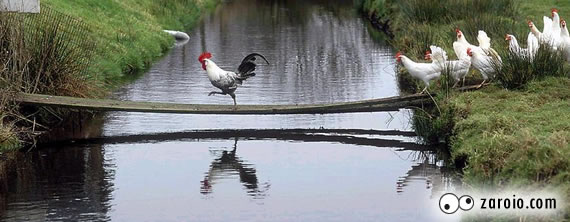Gripe H1N1: Primeiro caso confirmado em Portugal
Vagueando na Notícia :: Salas das mesas de grandes debates de noticias :: Noticias observadas DAS GALAXIAS SOBRE O PLANETA TERRA
Página 1 de 1
 Gripe H1N1: Primeiro caso confirmado em Portugal
Gripe H1N1: Primeiro caso confirmado em Portugal
Gripe H1N1: Primeiro caso confirmado em Portugal
Lisboa, Portugal 04/05/2009 12:43 (LUSA)
A ministra da Sáude anunciou hoje o registo do primeiro caso de gripe A (H1N1) confirmado em Portugal.
A ministra da Saúde, Ana Jorge, anunciou hoje o registo do primeiro caso de gripe A (H1N1) confirmado em Portugal.
A suspeita surgiu a 30 de Abril, dia em que o Ministério da Saúde anunciou que uma mulher se encontrava em observação num hospital de Lisboa.
Nesse dia, em conferência de imprensa, o secretário de Estado da Saúde Manuel Pizarro disse que a paciente, a ser sujeita a análises, apresentava, contudo, uma "situação clínica bastante favorável".
No encontro com a comunicação social a 01 de Maio, a ministra da Saúde esclareceu que a mulher, de 30 anos, observada no Hospital Curry Cabral, em Lisboa, se encontrava em casa. O teste que realizou pelo Instituto Ricardo Jorge, em Lisboa, deu positivo para o vírus da gripe tipo A não sazonal pelo que a colheita seguiu para os laboratórios certificados da Organização Mundial de Saúde em Londres.
"A senhora apresentava um quadro compatível com o das pessoas infectadas pelo vírus e, como tinha vindo de uma zona infectada, o México, está em casa, com indicação para o cumprimento das regras anti contágio: o uso de uma máscara e a lavagem frequente das mãos", esclareceu então a ministra.
"Todos as pessoas com quem ela contactou depois de regressar estão sinalizadas", assegurou ainda a governante, para quem "o domicílio é o melhor lugar para a senhora estar, pois permite ter uma noção correcta das pessoas com quem convive".
Lisboa, Portugal 04/05/2009 12:43 (LUSA)
A ministra da Sáude anunciou hoje o registo do primeiro caso de gripe A (H1N1) confirmado em Portugal.
A ministra da Saúde, Ana Jorge, anunciou hoje o registo do primeiro caso de gripe A (H1N1) confirmado em Portugal.
A suspeita surgiu a 30 de Abril, dia em que o Ministério da Saúde anunciou que uma mulher se encontrava em observação num hospital de Lisboa.
Nesse dia, em conferência de imprensa, o secretário de Estado da Saúde Manuel Pizarro disse que a paciente, a ser sujeita a análises, apresentava, contudo, uma "situação clínica bastante favorável".
No encontro com a comunicação social a 01 de Maio, a ministra da Saúde esclareceu que a mulher, de 30 anos, observada no Hospital Curry Cabral, em Lisboa, se encontrava em casa. O teste que realizou pelo Instituto Ricardo Jorge, em Lisboa, deu positivo para o vírus da gripe tipo A não sazonal pelo que a colheita seguiu para os laboratórios certificados da Organização Mundial de Saúde em Londres.
"A senhora apresentava um quadro compatível com o das pessoas infectadas pelo vírus e, como tinha vindo de uma zona infectada, o México, está em casa, com indicação para o cumprimento das regras anti contágio: o uso de uma máscara e a lavagem frequente das mãos", esclareceu então a ministra.
"Todos as pessoas com quem ela contactou depois de regressar estão sinalizadas", assegurou ainda a governante, para quem "o domicílio é o melhor lugar para a senhora estar, pois permite ter uma noção correcta das pessoas com quem convive".

Kllüx- Pontos : 11230
 Re: Gripe H1N1: Primeiro caso confirmado em Portugal
Re: Gripe H1N1: Primeiro caso confirmado em Portugal
WHO head indicates full flu pandemic to be declared
Reuters
The World Health Organization is likely to raise its flu alert to the top of its six-point scale and declare a pandemic, its director-general indicated in an interview published on Monday.
In remarks setting the scene for another alert increase, but without saying when, WHO chief Margaret Chan warned against over-confidence following a stabilization in the number of new cases of the H1N1 strain that has proved deadly in Mexico.
"Level 6 does not mean, in any way, that we are facing the end of the world. It is important to make this clear because (otherwise) when we announce level 6 it will cause an unnecessary panic," she told Spanish newspaper El Pais.
"Flu viruses are very unpredictable, very deceptive ... We should not be over-confident. One must not give H1N1 the opportunity to mix with other viruses. That is why we are on alert."
The WHO's pandemic phases reflect views about how a virus is spreading, and not how severe its effects are.
Last week the United Nations agency raised the alert level twice, from 3 to the current 5, in response to the sustained transmission of H1N1 in Mexico and the United States.
Before issuing a level 6 alert, the WHO would need to see the virus spreading within communities in Europe or Asia.
A declaration of a full pandemic would send a signal to governments worldwide to institute their pandemic response plans, which may include measures affecting hospitals, schools or public events.
Phase 6 would also trigger increased support for developing countries which lack the drugs, diagnostic tests, and medical staff to respond appropriately to the flu that the WHO has said could be especially dangerous for people with HIV/AIDS.
While the top-level alert would not have an automatic effect on the world's flu vaccine production, the WHO is expected to make an announcement alongside any such declaration to specify whether manufacturers should switch from making seasonal to pandemic flu vaccines.
In her remarks to El Pais, Chan said that weather patterns could play an important role in how the flu continues to spread. The southern hemisphere is about to enter winter, when seasonal flu cases normally spike, the infectious disease expert said.
"We have to be very careful. No one can predict what is going to happen when countries in the south have flu peaks and this new one arrives -- which it is going to do, without a doubt," she said.
On Sunday, a WHO spokesman said the relatively large number of infections in Spain of what has been commonly known as swine flu -- at 40, according to the WHO's count -- seemed to be mainly "imported" cases involving people returning from Mexico, the epicenter of the disease outbreak.
Chan echoed this and said that so far, there were not many flu patients in Europe that have not been to Mexico or had direct contact with those who had.
"It is true that the number is small, but because of that I would say that we have not seen the full situation or the whole picture of what is happening. The situation is evolving and the virus is changing," she said.
Chan, who fought SARS and bird flu in her previous job as Hong Kong's health director, said it was too early to predict what proportion of the population would catch the new flu strain after the European Union predicted 40 percent of the population would become infected.
Reuters
The World Health Organization is likely to raise its flu alert to the top of its six-point scale and declare a pandemic, its director-general indicated in an interview published on Monday.
In remarks setting the scene for another alert increase, but without saying when, WHO chief Margaret Chan warned against over-confidence following a stabilization in the number of new cases of the H1N1 strain that has proved deadly in Mexico.
"Level 6 does not mean, in any way, that we are facing the end of the world. It is important to make this clear because (otherwise) when we announce level 6 it will cause an unnecessary panic," she told Spanish newspaper El Pais.
"Flu viruses are very unpredictable, very deceptive ... We should not be over-confident. One must not give H1N1 the opportunity to mix with other viruses. That is why we are on alert."
The WHO's pandemic phases reflect views about how a virus is spreading, and not how severe its effects are.
Last week the United Nations agency raised the alert level twice, from 3 to the current 5, in response to the sustained transmission of H1N1 in Mexico and the United States.
Before issuing a level 6 alert, the WHO would need to see the virus spreading within communities in Europe or Asia.
A declaration of a full pandemic would send a signal to governments worldwide to institute their pandemic response plans, which may include measures affecting hospitals, schools or public events.
Phase 6 would also trigger increased support for developing countries which lack the drugs, diagnostic tests, and medical staff to respond appropriately to the flu that the WHO has said could be especially dangerous for people with HIV/AIDS.
While the top-level alert would not have an automatic effect on the world's flu vaccine production, the WHO is expected to make an announcement alongside any such declaration to specify whether manufacturers should switch from making seasonal to pandemic flu vaccines.
In her remarks to El Pais, Chan said that weather patterns could play an important role in how the flu continues to spread. The southern hemisphere is about to enter winter, when seasonal flu cases normally spike, the infectious disease expert said.
"We have to be very careful. No one can predict what is going to happen when countries in the south have flu peaks and this new one arrives -- which it is going to do, without a doubt," she said.
On Sunday, a WHO spokesman said the relatively large number of infections in Spain of what has been commonly known as swine flu -- at 40, according to the WHO's count -- seemed to be mainly "imported" cases involving people returning from Mexico, the epicenter of the disease outbreak.
Chan echoed this and said that so far, there were not many flu patients in Europe that have not been to Mexico or had direct contact with those who had.
"It is true that the number is small, but because of that I would say that we have not seen the full situation or the whole picture of what is happening. The situation is evolving and the virus is changing," she said.
Chan, who fought SARS and bird flu in her previous job as Hong Kong's health director, said it was too early to predict what proportion of the population would catch the new flu strain after the European Union predicted 40 percent of the population would become infected.

Kllüx- Pontos : 11230
 Tópicos semelhantes
Tópicos semelhantes» Gripe A(H1N1): OMS e farmacêuticas acusadas de alarmismo em relação a pandemia
» Gripe A H1N1
» Gripe A (H1N1) ..... a dos porcos
» Gripe A H1N1: Vírus em progressão no Canadá
» Gripe A H1N1: Angola reforça medidas...
» Gripe A H1N1
» Gripe A (H1N1) ..... a dos porcos
» Gripe A H1N1: Vírus em progressão no Canadá
» Gripe A H1N1: Angola reforça medidas...
Vagueando na Notícia :: Salas das mesas de grandes debates de noticias :: Noticias observadas DAS GALAXIAS SOBRE O PLANETA TERRA
Página 1 de 1
Permissões neste sub-fórum
Não podes responder a tópicos